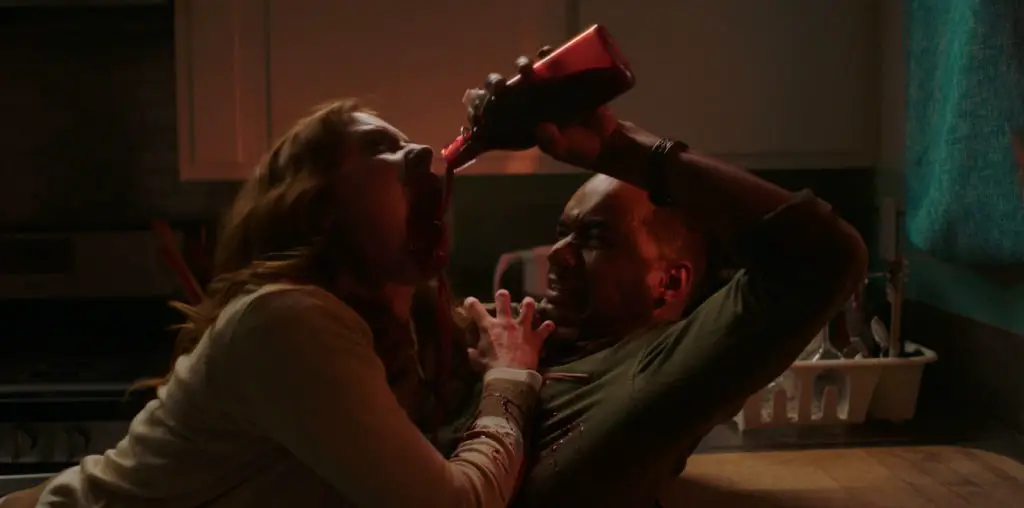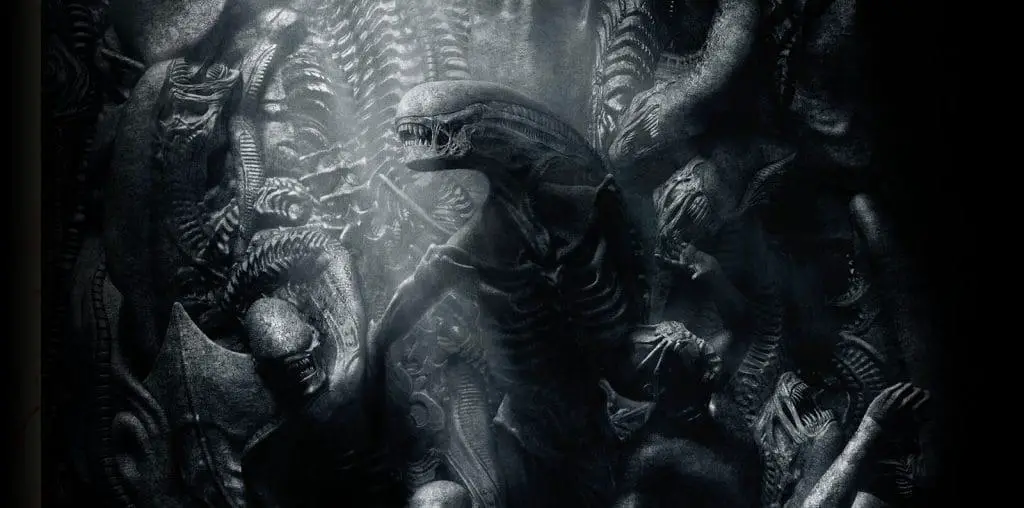
When one thinks of Joseph Conrad, one is likely to think of psychological adventure novels such as “Heart of Darkness” but the author also crafted short stories charged with an astonishingly modern sense of the darkness which can fill an untended heart. The French writer-director Patrice (Intimacy) Chereau has turned one such story, “The Return,” into a shocking, brilliantly original rumination on the subject of marital rot.
The great Pascal Greggory and Isabelle Huppert turn in some of the most powerful work of their long, distinguished careers in the roles of an upper class Parisian couple who share a time (1912) and a house busy with servants but have come after years trapped in a passionless marriage to reside in entirely separate worlds. Jean, the stuffy snob of a self-impressed husband learns this the hard way when he arrives home from work early one afternoon and finds a letter from his wife waiting for him in her place. He is stunned to discover she has left him. He is even more stunned, however, when she changes her mind and returns shortly thereafter. Talk about your awkward moments.
How much more compelling could a scene between a husband and wife possibly be? Jean is a bore who fancies himself a member of high society, a thrower of intellectual soirees whose invitations are much coveted. If this were a comedy, he would be played by John Cleese. It’s not.
Gabrielle is a woman who has spent ten years making the most of life as a trophy wife. Interestingly, Conrad appears to have anticipated the term as he has the husband at one point remark with pride “I love her as a collector does his most prized item.” She is outwardly beautiful, dutiful and composed to perfection. Inside, resentment and frustration have been festering for years and she is torn. Not between two lovers or between right and wrong but between her desire on one hand to leave and find happiness and on the other to stay and make her husband miserable.
She goes with the latter and is merciless. Having wasted her youth on the man, she’s determined to make sure he’s paid back in psychic spades for every year he has taken from her. Payback is a bitch on wheels.
The film is a wonder and a joy to watch on any number of levels. Cinematography doesn’t get any more gorgeous than this. Eric Gautier is a master. Chereau employs devices like jump cuts and intertitles which you might suspect wouldn’t suit a period piece such as this but, in fact, do without ever proving distracting. He switches back and forth between color and black and white too in a manner which underscores emotional pivot points the way another director might use a musical cue.
And, speaking of the score. My god; I swear Fabio Vacchi has managed to write music that sounds exactly like pain. Which I don’t think will help sales of the soundtrack CD but does wonders for the movie. The dialogue is a savage feast of precisely chosen unkind words. I watched the picture on a DVD screener and had to replay a particular scene three or four times. I just wasn’t sure I really was seeing what I thought I was seeing: a corseted, turn of the century wife looking her husband in the eye and informing him that “the thought of your sperm inside me is unbearable.”
Over the course of the picture, the couple’s balance of power shifts completely. Jean deteriorates into a pleading, pathetic mess while Gabrielle reveals untapped reserves of fearlessness and ferocity. By the time the film reaches its climax-a knock down, drag out break up brawl in the middle of one of their soirees-she makes Martha in “Who’s Afraid of Virginia Woolf” look like June Cleaver.
This, of course, is the sort of subtitled, underpublicized small film which could easily slip under one’s radar and that would be a shame and a loss to anyone who appreciates really brave, no holds barred, firing-on-all-pistons filmmaking. You’d have to go all the way back to Bergman to find scenes from a marriage as searing as these.

